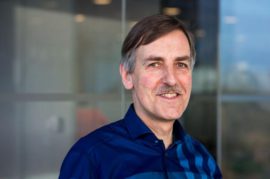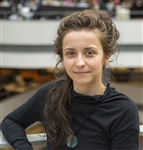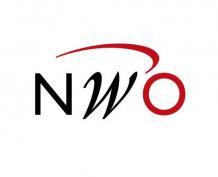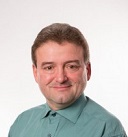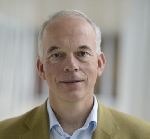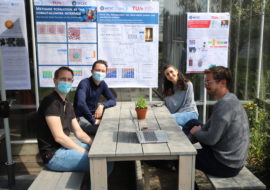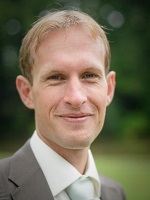On behalf of the Education Committee, a warm thank you to all who participated in this year’s MCEC School. We look back on a very informative week in which we enjoyed a lot of interesting (guest) lectures from Bas Haring and Tom van Aken as well as research talks from MCEC members, and overall learned a lot of new things – who, for example, knew that SCUBA is actually the abbreviation of Super Cool Underwater Breathing Apparatus?
MCEC School was organized in Rhenen as part of the training program for MCEC PhDs and Postdocs. This year marked the third edition of this annual event, which contains basic and advanced lectures with emphasis on multiscale and multidisciplinary approach. To see the full program, click here.
Haring
The work of Bas Haring – Professor Public Understanding of Science at Leiden University – focuses on how science is best explained, from the scientist to the general audience. In his invited lecture on Monday night, Haring shared his vision about and tips and tricks on explaining science to laypeople. Keeping high school students in mind as the target audience in your communication is a good idea, for they can provide a frame of reference concerning a broader general audience.
PEF
Though Avantium is a relatively small company, it has a huge impact. For instance, they have developed a completely new, high-quality plastic made from plant-based industrial sugars: the PEF bottle (made from polymer polyethylenefuranoate). In his invited lecture on Tuesday night, Tom van Aken, CEO Avantium, discussed product development and marketing, and talked about biobased and renewable energy.
Trouble
The Trouble Shooting Cases turned out to be very helpful. To Vishak Chandra, Aditya Sengar and Edwin Dollekamp it brought new insights in how to proceed with their research approach; a pre-solution for Vishak to solve his challenge and a new approach for Edwin to fabricate a nano-electrode, including the offered help of his colleagues to be able to test this new idea. New MCEC PhDs Michel van Etten and Valery Muravev also presented their projects and discussed their ideas about their approach and possibilities for collaborations with the MCEC PhD Community.
SCUBA
Team Community organized a quiz on science, music, geology and sports. This is where we learned that SCUBA, the Self Contained Underwater Breathing Apparatus, is actually Super Cool. We also learned how to get a group of 38 MCEC students drinking a beer at the bar completely silent: by showing them only emoticons as a means to convey song titles.
Below, you’ll find some pictures of MCEC School. If you have pictures yourself, please send them to us. As every year, our PhDs and Postdocs have received a survey request to provide the organization with feedback.
We thank all speakers and attendants for their contribution to the success of MCEC School 2017!
2-6 October, 2017
